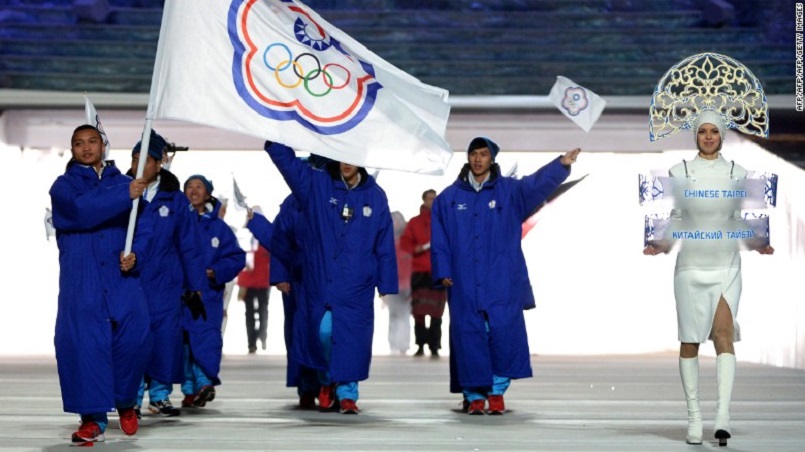
Tears rolled down Chen Shih-hsin's cheeks as, olive wreath atop her head and medal around her neck, she saluted the flag that rose above the stadium.
But the anthem that played for the first Taiwanese athlete to ever win gold -- she won gold at the 2004 Olympics in the lightweight taekwondo competition -- was not the one Chen heard growing up, nor was the flag in front of her the red and blue of Taiwan.
Instead, Chen stood under the white banner of "Chinese Taipei," a nation that does not exist, the result of a political compromise stemming from divisions that have existed since the end of the Chinese Civil War in 1949.
That compromise, which allows Taiwan to compete in the Olympics but not use its own name, flag or anthem, is increasingly starting to rankle among Taiwanese far more assertive of their identity and autonomy, especially in the wake of the election of President Tsai Ying-wen.
Changing identities
While Taiwan has participated in every Olympics for the past three decades, the compromise never sat well with many at home, and has grown more controversial as Taiwanese politics shifted in the direction of full independence from mainland China.
According to annual polls conducted by National Chengchi University, only 13.6% of respondents in 1991 self-identified as Taiwanese; by 2004, that number had risen to over 45%. A poll conducted this year by the Taiwanese Public Opinion Foundation found that 80% of respondents described themselves as Taiwanese.
This is particularly true among the younger generations, many of whom participated inwidespread protests against further economic integration with China — the so-called "Sunflower Movement" — and supported the candidacy of recently inaugurated President Tsai.
"We definitely want a peaceful relationship with China," lawmaker and Sunflower Movement activist Huang Kuo-chang told CNN in January.
"But that doesn't mean we have to sacrifice our way of life."
As Taiwan becomes more assertive of its identity at home, many are asking why it should not do so overseas as well.
Freddy Lim, a death metal frontman and lawmaker elected at the same time as Tsai, says the name "Chinese Taipei" is "disrespectful."
"Taiwan's Olympic athletes come from all over the country and are of different ethnic backgrounds, so the best name for the team would be 'Taiwan'," he told CNN.
"I hope the global community could see how Taiwan is treated internationally and support our efforts to participate in international affairs as a normal country."
Coen Blaauw, executive director of the Formosan Association for Public Affairs, which advocates for Taiwanese independence (Formosa is a historical name for the island of Taiwan), says the use of the name is damaging to Taiwan's international standing.
"Not only is the name 'Chinese Taipei' humiliating for the 23 million people of the democratic country of Taiwan, we are concerned that the name will stick," he told CNN.
"China's veto power and approval over Taiwan's role on the international stage should not be a prerequisite for Taiwanese participation in international organizations like the Olympics."
DK Dang, chairman of World United Formosans for Independence, says he hopes Tsai's administration will pressure the IOC to allow Taiwan to compete under its own name.
Tsai's office did not respond to a request for comment.
China has maintained that nothing is permissible on the international stage if it suggests there are "two Chinas."
